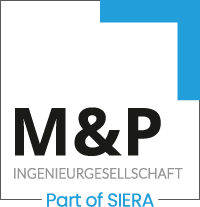Historically, groundwater in Germany has been an (in)finite resource. At present, around 70 % of the water for public services is covered by groundwater resources. However, groundwater formation is already significantly disturbed today in the wake of heavy rainfall, droughts and evaporation due to air temperatures rising twice as fast relative to the global average.
In this respect, in the coming years and decades, an increasing demand will face a decreasing water supply, whereby already today the authorised abstraction quantities in municipalities, districts and conurbations are fully utilised or no longer sufficient.
In order to technically and economically secure drinking and process water supplies in the long term, an adapted and conscious use of the valuable resource water is indispensable. In order to strengthen resilience to climate impacts, regionalised and intelligent water management is necessary - both in public water supply and in self-supply by agriculture and industry.
Planning and technical instruments are interlinked to implement sustainable water use that is appropriate to the available supply. Examples of potential measures include peatland revitalisation, (drinking) water substitution in industrial processes, decentralisation in water supply systems, higher retention of precipitation via polder areas and conceptual urban planning ("Sponge City") or the expansion of existing monitoring networks. In addition, the networking of all actors and interest groups must be an integral part - also in order to counteract conflicts of use at an early stage. In order to effectively counter the consequences of climate change and the associated challenges, water management represents the central building block for the implementation of the Federal Government's National Water Strategy.
M&P Nord has years of experience in the field of water quantity management and is happy to support you in your projects.

